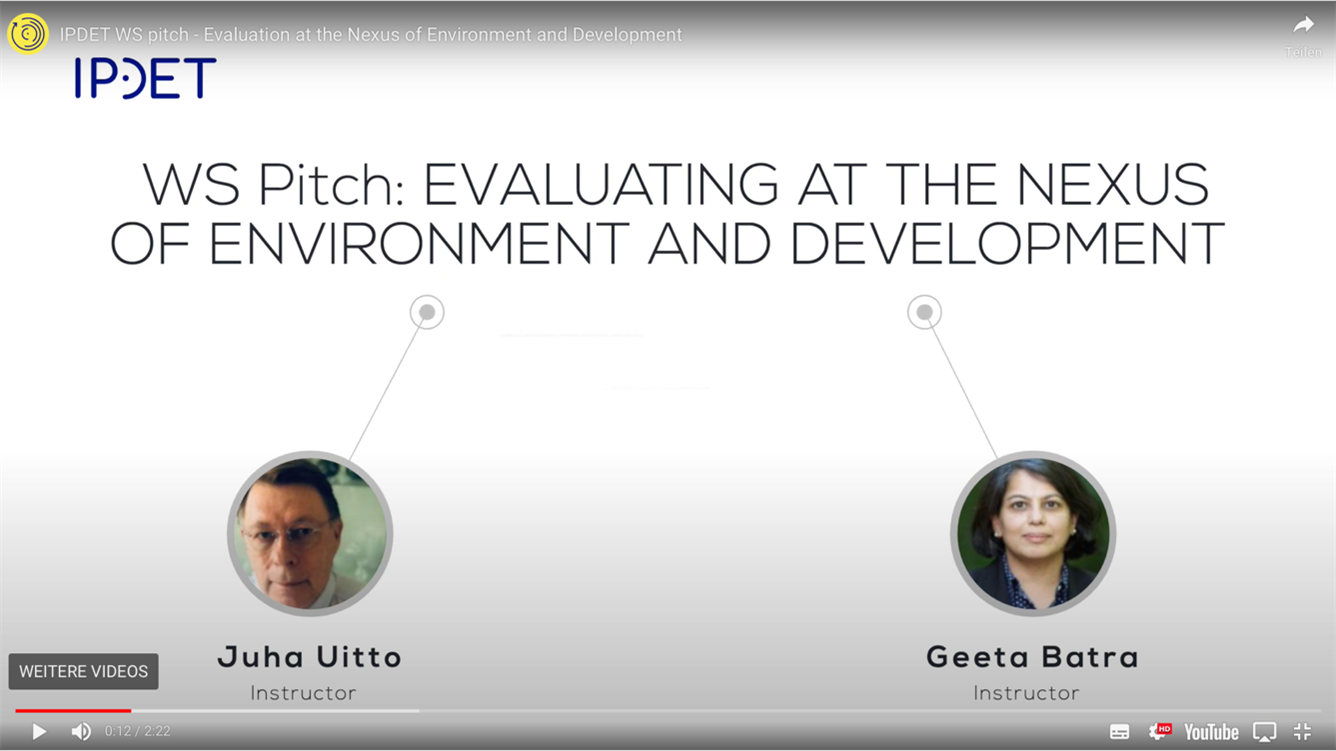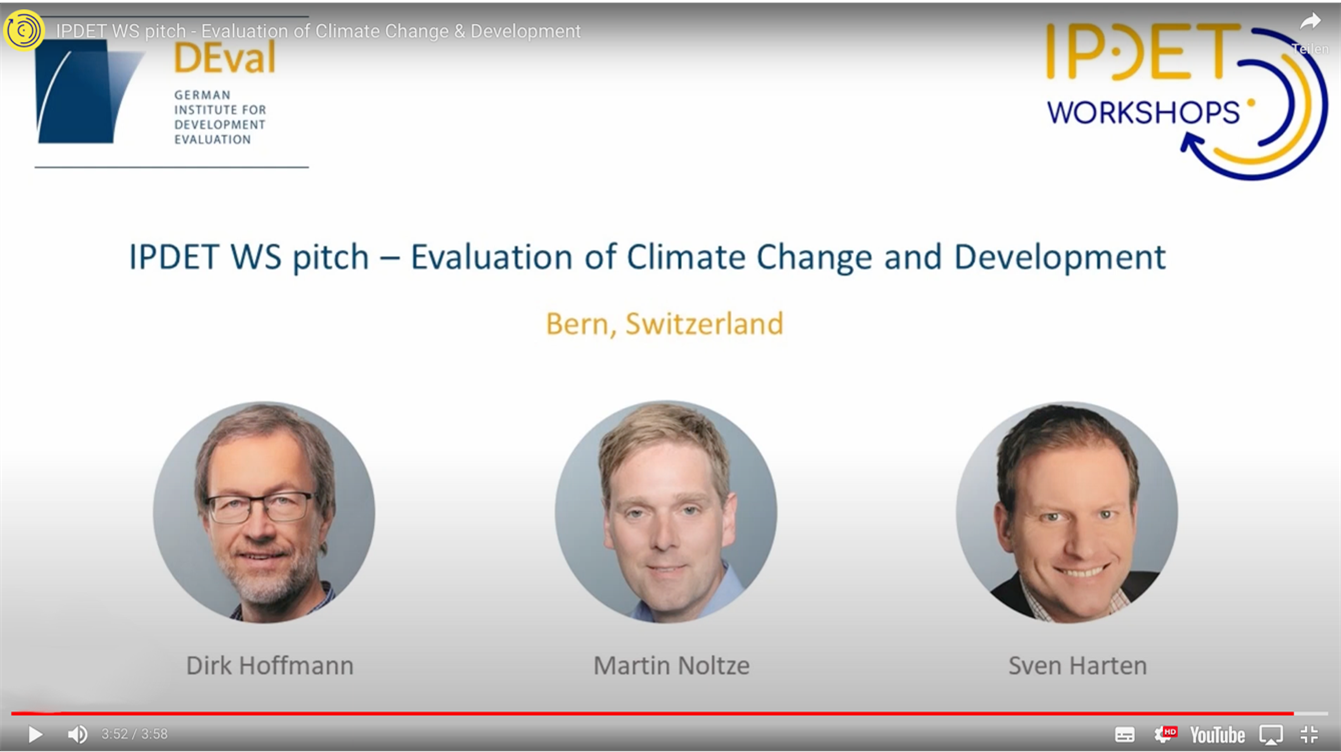IPDET Emphasizes Enhancing Evaluation Capacity in Environmental Issues in its 2023 Training Programs
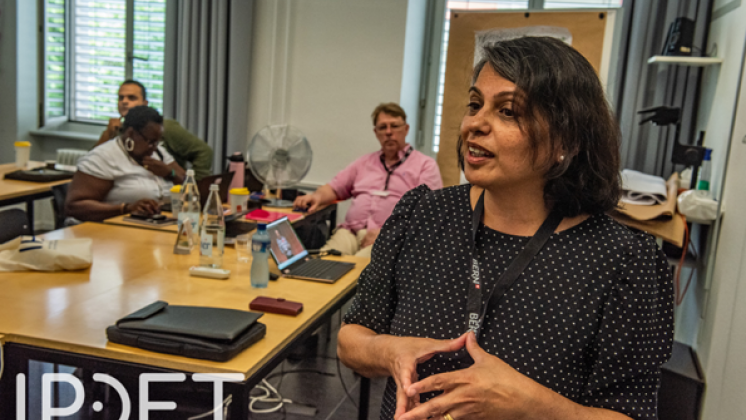
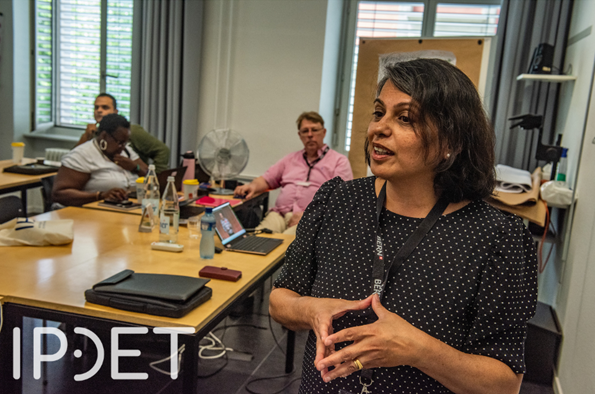
Geeta Batra and Juha Uitto (Global Environment Facility) at the IPDET 2022 On-Site workshop “Evaluation at the Nexus of Environment and Development”
In recent years, the International Program for Development Evaluation Training (IPDET) has been actively including relevant topics on the environment and sustainability in its evaluation capacity training programs. Through workshops such as "Blue Marble Evaluation" and "Transforming Evaluation for Evaluating Transformation" led by Michael Patton, and "Monitoring and Evaluating the UN Sustainable Development Goals" led by Wolfgang Meyer, IPDET has successfully brought environmental issues to the forefront of evaluation discussions, reaching over 140 individuals in 8 workshops over the last four years.
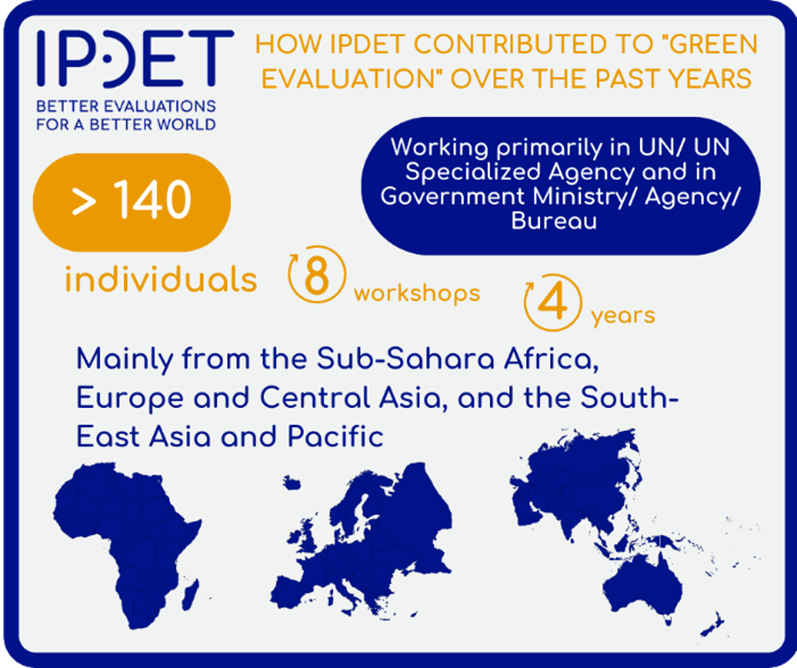 According to IPDET 2022 participant Alexandra Yánez Casalombo, Public Policy Evaluation Officer, Secretaria Nacional de Planificación, Ecuador, “It was so exciting to have participated and enhanced my knowledge and skills in gender-responsive evaluation and evaluation of environment and development at IPDET. Lots of knowledge and takeaways to process and apply in my professional life."
According to IPDET 2022 participant Alexandra Yánez Casalombo, Public Policy Evaluation Officer, Secretaria Nacional de Planificación, Ecuador, “It was so exciting to have participated and enhanced my knowledge and skills in gender-responsive evaluation and evaluation of environment and development at IPDET. Lots of knowledge and takeaways to process and apply in my professional life."
IPDET's On-Site program for 2023 will continue to place a strong emphasis on environmental and sustainability issues. The program will offer two complementary workshops on "green evaluation" that, taken together, are designed to provide a comprehensive understanding of the most relevant topics in this space. Both workshops will emphasize the importance of transformative change and the need for approaches that can assess the transformative potential of interventions.
The workshop “Evaluation at the Nexus of Environment and Development” covers topics like developing theories of change for interventions in biodiversity, international waters, chemicals and waste management, and climate change, while recognizing the interrelationships across these domains. Furthermore, it evaluates integration and socioeconomic co-benefits as well as transformational change. Among the topics to be covered are systems approach, application of mixed methods, and geospatial tools.
Date: July 17 – 19, 2023
Location: University of Bern, Switzerland
Instructors: Juha Uitto (Director of the Independent Evaluation Office of the Global Environment Facility, GEF) and Geeta Batra (Chief Evaluation Officer and Deputy Director of the Independent Evaluation Office of the GEF)
Watch the workshop pitch:
The workshop on “Evaluation of Climate Change and Development” covers methods and tools for the evaluation of climate finance and development impact, including evidence reviews, evaluation of the UN Sustainable Development Goals (SDG), advanced case studies analysis, vulnerability assessments and geospatial evaluation. Topics addressed in this workshop include the implications for evaluation of climate-relevant concepts such as resilience, vulnerability, mitigation and adaptation, loss and damage and transformation; the role of evaluation in the context of CoP negotiations and global stocktakes as well as SDG and country-led evaluation; and the evaluation of transformative change.
Date: July 20 – 21, 2023
Location: University of Bern, Switzerland
Instructors: Dirk Hoffmann (Evaluator at the German Institute for Development Evaluation (DEval)), Martin Noltze (Senior Evaluator at the Competence Center for Evaluation Methodologies, DEval) and Sven Harten (Deputy Director of DEval & Head of the Competence Centre for Evaluation Methodologies)
Watch the workshop pitch:
